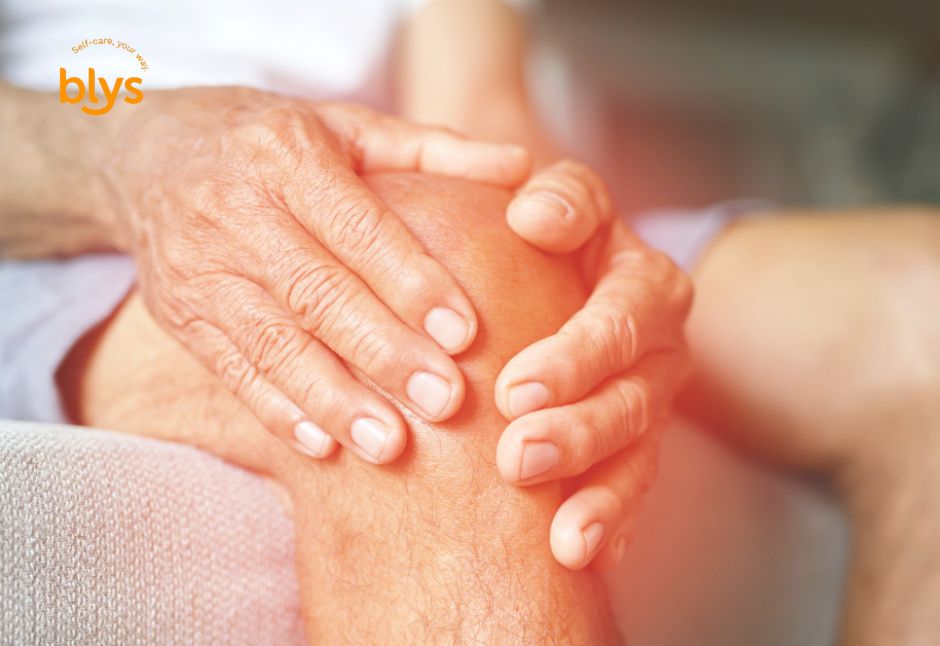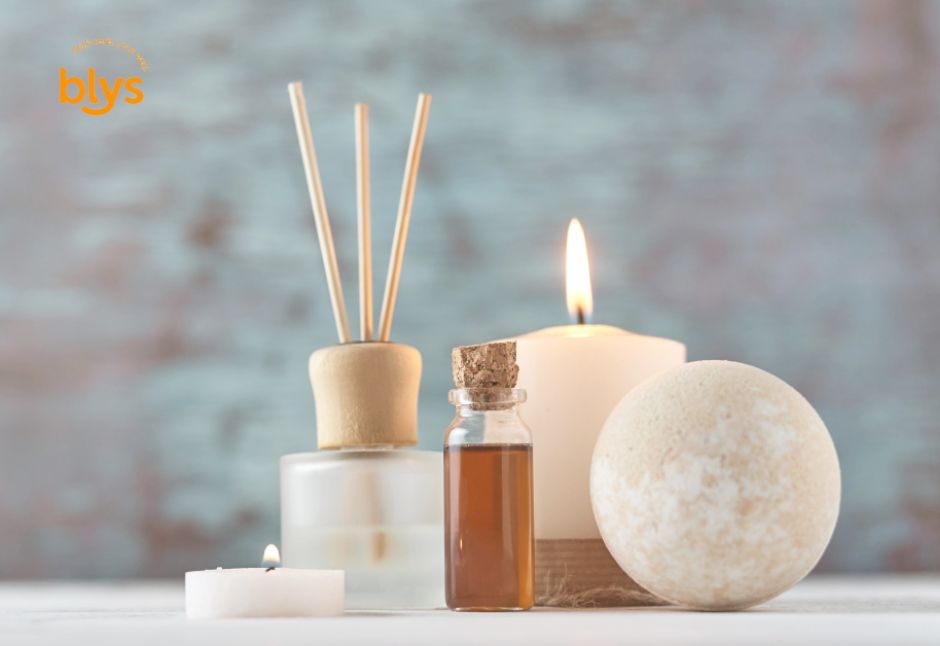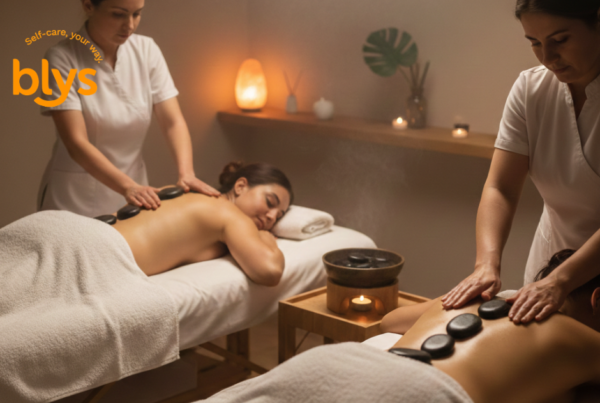
Find Relief Today: How Massage Soothes Osteoarthritis Pain
Living with osteoarthritis can feel like a constant battle against pain and stiffness, turning simple joys like walking in the park or bending to tie your shoes into daunting tasks. As the protective cartilage in your joints wears down, bones begin to rub against each other, causing discomfort and limiting mobility. But osteoarthritis isn’t just about the joints—it affects your entire body. Muscle tightness, joint instability, and reduced flexibility often follow, making it harder to stay active and enjoy life.
Massage therapy offers a holistic solution by addressing not just joint pain but also the surrounding muscle tension and circulation issues. By enhancing blood flow, reducing inflammation, and loosening tight muscles, massage helps alleviate discomfort and restore mobility. It’s a natural, non-invasive way to ease the ripple effects of osteoarthritis, helping you move more freely and reclaim control over your daily activities.
Can Massage Help You with Osteoarthritis?

The answer? Absolutely! Massage therapy is far more than a luxury—it’s a proven and effective way to manage osteoarthritis symptoms. With the right approach, massage can:
- Relax tense muscles that work overtime to support stiff joints, bringing instant relief.
When osteoarthritis causes joint stiffness, the surrounding muscles take on extra work to keep you moving. Over time, this leads to tightness, fatigue, and added discomfort. Massage therapy targets these overworked muscles, releasing built-up tension and easing pain. The result? Immediate relief and better mobility.
- Boost blood circulation, delivering oxygen and nutrients to affected areas for faster healing.
Stiff, inflamed joints often suffer from poor circulation, slowing the body’s natural healing process. Massage stimulates blood flow, carrying oxygen and nutrients to affected areas. This improved circulation reduces swelling, promotes tissue repair, and leaves you feeling re-energised.
- Reduce stress hormones like cortisol, which can worsen inflammation and pain.
Stress doesn’t just impact your mind—it fuels inflammation in your body by increasing cortisol levels. Massage therapy lowers cortisol, activating your body’s natural relaxation response. As inflammation eases, you’ll experience less pain and a deep sense of calm that promotes overall well-being.
- Release endorphins, your body’s natural painkillers, to alleviate discomfort and lift your mood.
Endorphins are the body’s built-in pain relief system, and massage therapy helps stimulate their release. Not only do these “feel-good” chemicals block pain signals, but they also boost your mood and help you relax. It’s like giving your mind and body a much-needed reset.
Think of it as a therapeutic retreat for your joints. A skilled therapist can tailor every session to your needs, providing both immediate relief and long-term benefits for joint health. And with Blys Mobile Massage, professional care comes to you. No traffic, and no waiting rooms—just top-notch treatment in the comfort of your home. It’s self-care made effortless.
The Science Behind Massage for Osteoarthritis
You might be wondering, “How does massage actually work?” It all comes down to science. When muscles surrounding a joint are tense or overworked, they can exacerbate the pain of osteoarthritis. Massage therapy counteracts this by:
- Increasing circulation helps flush out inflammation-causing toxins.
- Stimulating the lymphatic system, reducing swelling and promoting healing.
- Encouraging the release of natural pain-relieving hormones, such as serotonin and dopamine.
Studies show that consistent massage therapy not only alleviates pain but also improves range of motion and flexibility—all essential for tackling the challenges of osteoarthritis head-on. It’s a therapeutic blend of relaxation and rehabilitation that works wonders for both body and mind.
The Best Massages to Soothe Your Osteoarthritis Pain

When it comes to osteoarthritis, one size does not fit all. The right massage technique depends on your specific needs, pain levels, and goals. Explore types of massages.
Here are the top massage types to consider:
1. Swedish Massage: Relaxation and Circulation
Swedish massage is often referred to as the gentle giant of massage techniques. It involves long, flowing strokes, kneading, and light pressure designed to create a deeply relaxing experience. This technique not only boosts circulation but also helps reduce muscle tension and stress-related stiffness. If you’re new to massage therapy, Swedish massage is a fantastic starting point.
- Boosts circulation, delivering nutrients to the affected joints.
- Reduces overall muscle tension, promoting ease and relaxation.
- Ideal for stress-related stiffness and general relaxation.
2. Deep Tissue Massage: Targeting Chronic Pain
Deep tissue massage goes beyond the surface to target the deeper layers of muscle and connective tissue. Using firm pressure and slow, deliberate strokes, this technique is designed to address chronic pain and stiffness. It’s perfect for breaking down adhesions (knots) that limit mobility and provide long-lasting relief for deeply rooted discomfort.
- Alleviates chronic muscle pain and tightness.
- Breaks down adhesions that restrict mobility.
- Offers long-lasting relief for stubborn, deep-seated pain.
3. Trigger Point Therapy: Releasing Knots and Tension
Trigger point therapy focuses on specific areas of muscle tension often referred to as “knots.” The therapist applies and releases pressure to these points, relieving localised pain and reducing referred pain that radiates to other areas. This targeted approach is especially effective for addressing pain caused by overcompensating muscles.
- Relieves localised muscle tension and knots.
- Reduces referred pain affecting nearby areas.
- Enhances overall muscle function and joint stability.
4. Myofascial Release: Releasing Tight Fascia
Myofascial release is a gentle technique that applies sustained pressure to the fascia—the connective tissue that surrounds muscles. This approach helps relieve chronic tightness, improves flexibility, and supports better posture and alignment, making it ideal for those dealing with long-term stiffness or mobility issues.
- Improves flexibility and mobility around joints.
- Relieves chronic tightness in connective tissues.
- Enhances posture and supports joint alignment.
5. Hot Stone Massage: Heat for Relaxation
Hot stone massage pairs the soothing warmth of heated stones with traditional massage strokes. The heat enhances circulation, relaxes tight muscles, and provides a deep experience. It’s an excellent choice for relieving deep-seated tension and promoting overall relaxation.
- Relieves deep muscle tension and stiffness.
- Enhances circulation for improved joint health.
- Offers a soothing and indulgent experience.
Finding the Perfect Massage to Ease Your Osteoarthritis Pain
When selecting the right massage for osteoarthritis, it’s important to keep these factors in mind to ensure a safe and effective experience:
- Severity of Symptoms
- For mild discomfort: Techniques like Swedish massage can provide gentle relief and relaxation.
- For chronic pain: Deeper methods such as Deep Tissue Massage or Trigger Point Therapy may be more effective in targeting persistent stiffness and knots.
- Personal Comfort Level
Not everyone enjoys the same type of pressure. While some find deep massage soothing, others may prefer lighter techniques. Choose a method that aligns with your comfort level and pain tolerance. - Consulting with a Professional
A licensed massage therapist can evaluate your symptoms and recommend the most suitable approach, ensuring you get the maximum benefit from each session.
When to Avoid Certain Massage Techniques
- Avoid deep pressure if your joints are inflamed, swollen, or tender, as this can worsen symptoms.
- Refrain from massage during flare-ups to prevent aggravating pain or discomfort.
- Always consult your doctor before starting massage therapy, especially if you have other medical conditions that may require precautions.
By understanding your body’s needs and seeking professional guidance, you’ll be able to choose a massage that supports both comfort and recovery.
Also, Read – Best Type of Massage for Fibromyalgia
The Convenience of Mobile Massage for Osteoarthritis Relief
Imagine this: relief for your aching joints without ever having to leave the comfort of your home. Blys mobile massage brings licensed therapists straight to your doorstep, transforming self-care into a stress-free experience. For those managing osteoarthritis, where even small movements like getting in and out of a car can be painful, mobile massage is a true game-changer.
- No travel stress: Avoid the hassle of commuting, sitting in traffic, or navigating crowded clinics. By eliminating unnecessary strain on your joints, you’re free to focus on recovery and relaxation.
- The comfort of home: There’s nothing better than receiving treatment in your own familiar environment. Whether it’s your cozy living room or a peaceful spot at your office or hotel, mobile massage allows you to unwind where you feel safest and most comfortable.
- Tailored care: Every session is uniquely adapted to your condition and needs. Therapists can focus on specific pain points and stiffness, ensuring a treatment plan that supports your mobility, relieves discomfort, and promotes long-term wellness.
With Blys, Booking a Massage Is Effortless
Blys takes the guesswork out of finding professional massage therapists by connecting you with trusted, independent practitioners who bring their expertise straight to you. Whether you’re at home, at the office, or in a hotel room, booking is quick and convenient through the Blys platform. Forget clinic waits and scheduling headaches—simply choose a time and place that works for you, and let the therapist come to you.
Blys empowers you to prioritise your health and well-being on your terms, making professional, personalised massage therapy accessible no matter where life takes you.
Your Osteoarthritis Massage Questions Answered
Managing osteoarthritis can feel overwhelming, but incorporating massage therapy into your routine can make a world of difference. Below are some of the most common questions about massage for osteoarthritis to help you make informed decisions and get the most out of your care.
1. How often should I get a massage for Osteoarthritis?
- For chronic symptoms: Weekly sessions are ideal for managing persistent pain, reducing stiffness, and improving mobility. Consistency ensures the best results over time.
- For maintenance: Once symptoms are under control, bi-weekly or monthly sessions can help sustain flexibility, prevent flare-ups, and keep discomfort at bay.
2. Are there risks to massage for Osteoarthritis patients?
Massage is generally safe when performed by a trained professional. However, avoid deep pressure techniques during flare-ups, as this may aggravate pain or inflammation. If you have specific concerns or other medical conditions, always consult your doctor before beginning massage therapy.
3. Can I combine massage with other treatments for better results?
Absolutely! Massage therapy works beautifully alongside other treatments like physical therapy, gentle exercise, and prescribed medications. This combination approach can maximise pain relief, improve joint health, and enhance your overall quality of life.
Don’t let osteoarthritis dictate your daily life. By embracing the healing power of massage therapy, you can take meaningful steps toward a more comfortable, active, and empowered future.





